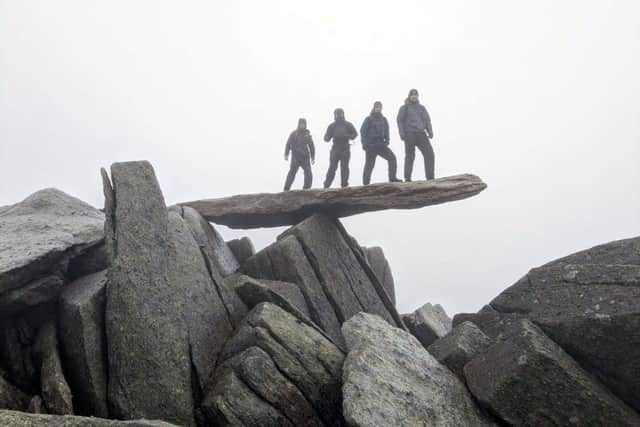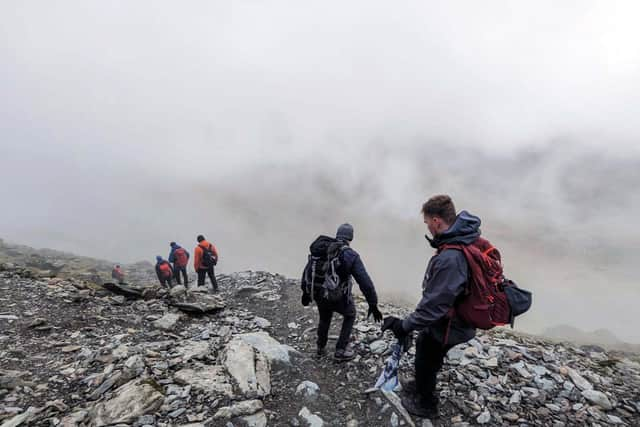Royal Navy: Portsmouth helicopter engineers tackle Snowdonia ahead of excruciating Himalayas challenge
and live on Freeview channel 276
A team of 14 military personnel from 1710 Naval Air Squadron in Portsmouth Naval Base are planning to tackle three peaks. They members of the specialist unit will have to climb heights of above 17,500ft.
The engineers provide support for all the UK Armed Forces' helicopter fleet. They're hoping that their adventurous training expedition in Snowdonia - where they trekked up peaks in Wales - will help them prepare to what is known as the Three Passes Trail.


Advertisement
Hide AdAdvertisement
Hide AdThey believe completing the gruelling mission will help them build a stronger relationship together by working in challenging environments. Lieutenant Jenna Clark, a repair officer with 1710 NAS, said she and her colleagues had planned the expedition thoroughly.


"As the departure date approaches, the camaraderie among the aircraft engineers is growing stronger, fuelled by shared experiences in Snowdonia and the collective pursuit of conquering the Three Passes Trail," she said. "Our dedication to both professional excellence and outdoor adventure reflects a harmonious blend of skills that will undoubtedly contribute to our success in this awe-inspiring trek through the heart of the Nepalese Himalayas."
As part of their duties, the engineers are often deployed around the world to conduct repairs and assist in the recovery of helicopters used by the Fleet Air Arm, RAF and Army Air Corps. They can be called to anywhere from the Middle East to the Norwegian Arctic.
While on their mission in Nepal, they'll face temperatures which could plummet to as low as -20C as they climb the Kongma La, Cho La and Renjo La trails. The crew will face perilous dangers such as altitude sickness and ferocious weather conditions.
Advertisement
Hide AdAdvertisement
Hide AdFour of the members have completed comprehensive outdoor remote first aid courses, allowing them to handle emergencies in remote locations and challenging landscapes. It typically takes 17 days to cover the 103-mile trek, beginning and ending in the capital Kathmandu.
Comment Guidelines
National World encourages reader discussion on our stories. User feedback, insights and back-and-forth exchanges add a rich layer of context to reporting. Please review our Community Guidelines before commenting.